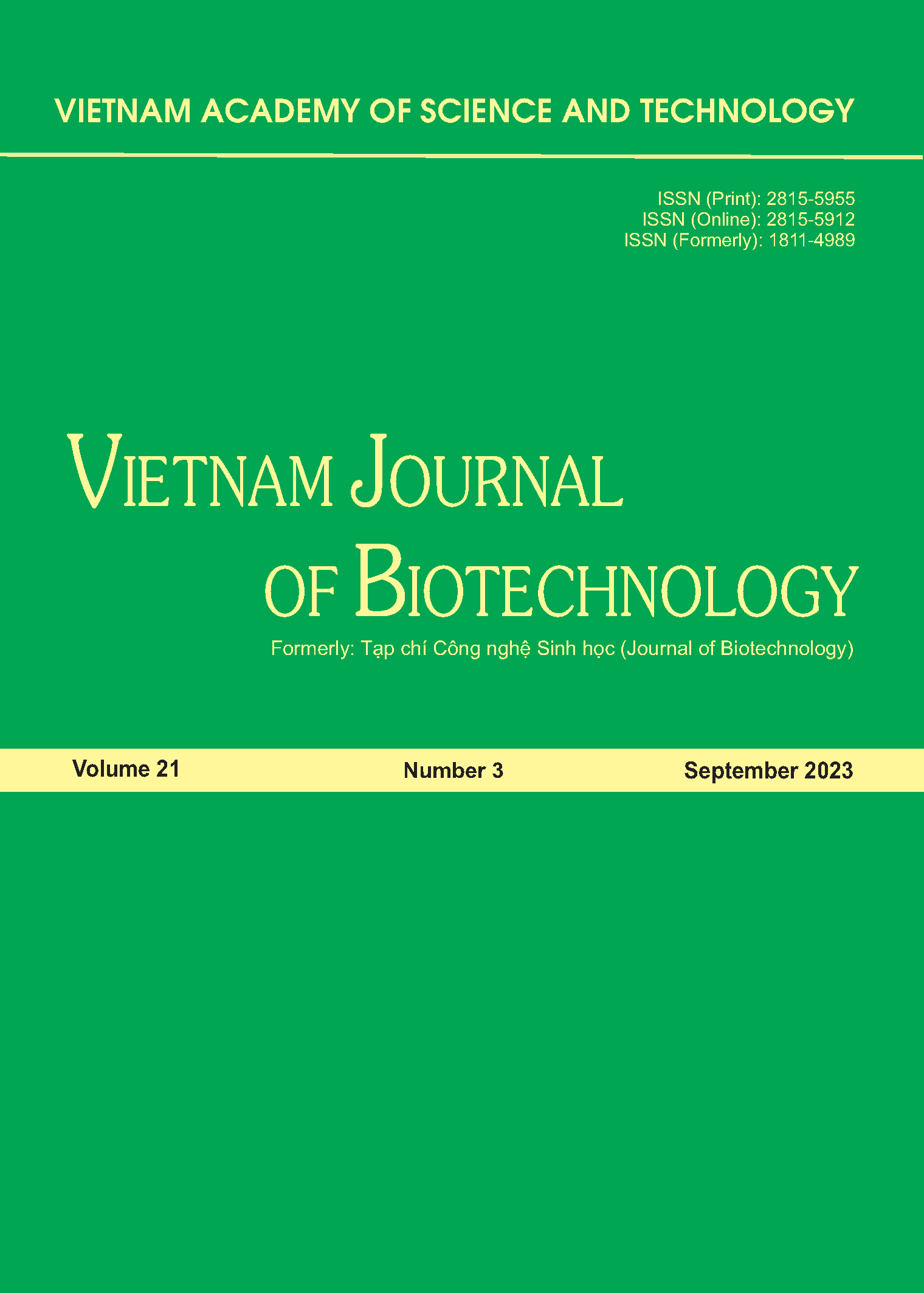Prediction of conservative epitopes in the NS1 sequences of all four dengue virus serotypes
Author affiliations
DOI:
https://doi.org/10.15625/1811-4989/18423Abstract
The Dengue virus, transmitted by Aedes aegypti mosquitoes, causes dengue fever, a life-threatening illness. NS1 (Nonstructural Protein 1) has been widely used as a biomarker for detecting dengue due to its early occurrence, high sensitivity, and specificity. The main objective of this study was to design an epitope-rich peptide capable of identifying all four dengue serotypes using homology modeling. Homology protein modeling, a computational approach, predicts the 3D structure of a protein by comparing its sequence to a known template. To achieve this goal, various bioinformatics tools, such as Blast/NCBI, BepiPred, Discotope 2.0, and HADDOCK, were utilized. As a result, there were 18 consensus sequences for the four Dengue serotypes from amino acid 12 to 344. However, the eight of them have shown the most highly scoring conservative sequence segments in BepiBred, Antigenicity, Beta turn, Surface accessibility, Flexibility, and Hydrophilicity. In the results of predicting epitopes, three conservative segments predicted to be the best antigens were selected. Combining the resulting parts, two potential NS1 peptides, containing 149 amino acids from positions 112 to 260, were identified and characterized in all four DENV strains. It is the sequence segment that will be selected for creating materials such as recombinant antigens and monoclonal antibodies for the diagnosis of dengue hemorrhagic fever in the next study.





